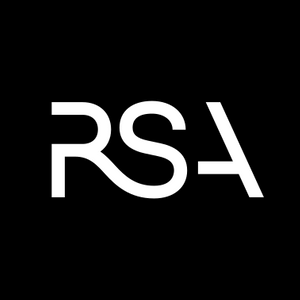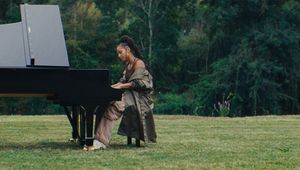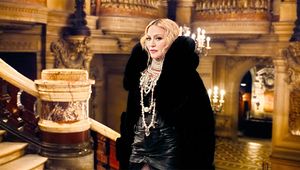
How to Get Fashion Films Right

People in the broader industry of commercial filmmaking are sometimes prone to looking down on films made for fashion brands. While the brands themselves might be cool, there’s a stereotype that some of their film output is too much style over substance - very pretty but not all that interesting.
If you’ve ever been guilty of thinking fashion films are superficial or humourless, Sophie Edelstein’s body of work is the antidote. The Black Dog Films director has been behind some of the most unique and downright weird projects in recent years. Her films bristle with a wry sense of humour and self-conscious awareness of the genre, short films that are well worth a watch, whether you’re interested in fashion or not.
We caught up with Sophie to find out how she’s carved out this niche for herself and made an impact on the fashion film scene.
Q> Over the last 12-months you’ve become one of the most in-demand directors for fashion film. Was fashion always the plan?
SE> Not specifically, although when I look at my first two jobs (I worked at Vogue UK and then Miramax), maybe it was?! I grew up with a mother who was a model who instilled in me the idea that fashion is art and so I always appreciated the aesthetics around fashion. When I first started directing, it was a world I understood and I think my aesthetics suited that world, I could talk that language. I guess I had the right stylistic instinct. I also only referenced stills and predominantly fashion stills, no matter what the job, to get the right colours and tones, so it was a natural progression.
Q> Your films have a very relaxed colloquial vibe. How much is scripted? Do you encourage your subjects to try and express their personality and style?
SE> Most is scripted, but with the subject's personality taken into account so it feels both natural and self-referential. It needs to be the best version of the subject on their best day. I know my voice comes through a lot but I want it to feel very much reflective of the subject, show a new side to them, bring out the best of their personality.
Q> Is there any scope to extend your narrative based work into other formats? Is this something you’d be interested in?
SE> Absolutely. I'm very driven to do longer form, a film first, but I have a few television projects set up which I am excited about.
Q> Your films for Charlotte Olympia and Semaine & Chloe evoke a sense of self-awareness and humour not usually seen in fashion campaigns. Is this a hard pitch to the client?
SE> I suppose that depends on the client! Anyone that knows me and knows my work I think would be open to it. I also want to make things funny and smart and I want to make the experience of creating the piece really enjoyable for everyone so that attitude helps encourage people to take risks.
Both Charlotte and the Semaine girls are really a blast to work with and bring so many ideas to the table, and are open to humour.
Sometimes people are really not into it and that's ok too. At the end of the day you have to make the right thing for the brand, you have to be flexible.
Q> A lot of people seem to think fashion films are superficial or inconsequential. Yours aren't. How do you feel about that preconception?
SE> I think it's frustrating and it's one I want to break! Early on I think a lot of fashion films were a bit whimsical and wafty. There's nothing wrong with that per se and in fact I really enjoy watching things that lurch me into a dreamlike state. However, there was no narrative, no irony. Also at that point a lot of stills guys were making the films and their skill set is so different that their priorities are different and there's a place for all of it. I feel like it's a priority question, different brands want different things.
Q> What's the best way to get started making fashion films? Where should filmmakers start?
SE> Oh boy, I think by working - literally shooting everything and anything you can - but also finding your own voice and style and sticking with it. Hustling to get work, interning at fashion companies, understanding that world. I think also working on the publishing side helps because then you understand what brands and publishers want and that's really important. I interned at some fashion houses, worked briefly at Vogue and still have a long and really loyal relationship with Russh Magazine who really gave me breaks early on.
Also, of course, watching tonnes of movies and films, recognising colour tones, finding an aesthetic that suits you. Remaining original (even though everything is referenced all the time). Consistency is key. For me, I want to learn something, do something different, push myself in a different way on every single job. It is borderline psychotic.
Q> If you could be a fashion icon from any era, who would you be and why?
SE> I feel like I cannot distil this, because I am really aesthetically driven in my life. When I was younger I wanted to dress like Audrey Hepburn in Funny Face and basically swan around in Balenciaga, I still quite like that idea. The Katharine Hepburn/Annie Hall school of thought, I love because it's just so chic and at the time, really quite edgy. I love a tailored suit. Cannot get enough of them. Lauren Bacall in To Have and Have Not. Faye Dunaway in Chinatown, my god I died for her and died for the tailored trousers. My mother. She is the chicest thing alive, never not wearing red lipstick and jewels.
Q> What are you working on at the moment?
SE> A movie, a few television projects and of course, commercials which I don't think I can talk about!
Q> What's the most important lesson you've learned from your time as a director?
SE> Listen and don't panic. I think my best friend said to me one day, “just keep swimming” and I think that's key. Just keep going, that is probably key.













